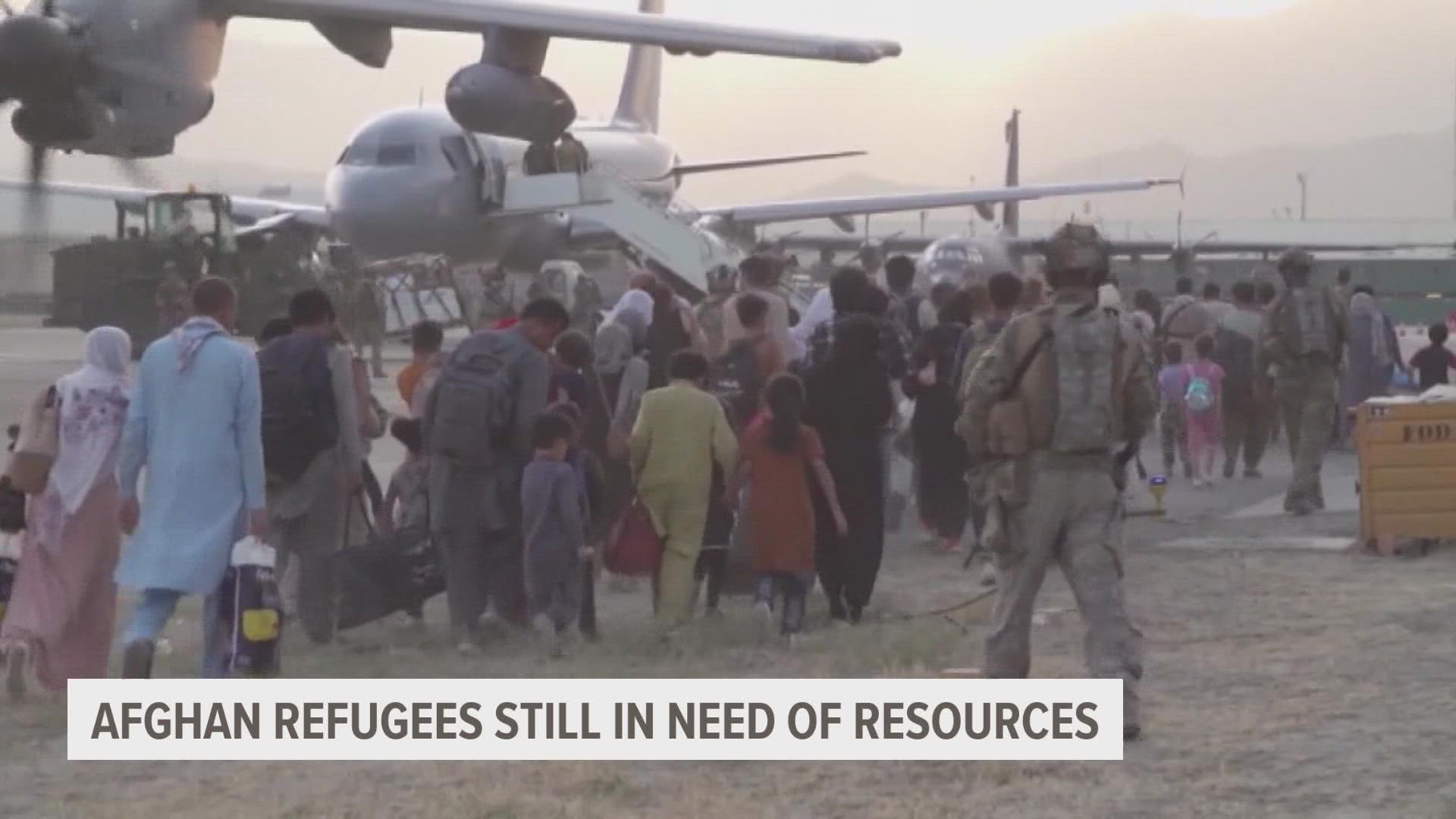DES MOINES, Iowa — Aug. 30 will mark the one-year anniversary of U.S. troops withdrawing from Afghanistan. That move sparked an uptick of Afghan refugees coming to the United States for help.
"It just feels like we're constantly putting out fires instead of being able to kind of get ahead of things," said Des Moines Refugee Support Founder and Director Alison Hoeman. "It's been frustrating."
According to Hoeman, a few families have received eviction notices, while others are struggling to navigate transportation, school enrollment and healthcare. For refugee families in Des Moines, the need for help and community support is far from over.
"Several families have been given eviction notices due to being over the occupancy limits," added Family Outreach Coordinator Sedina Traljesic. "And others are because housing just isn't affordable."
While Des Moines Refugee support worked alongside the local organization IMPACT to find rental assistance for these families, they say it's not a long-term solution.
"That's only for a few months," said Traljesic. "And their funds are running low and going fast. So I have no idea what we're going to do once those funds run out."
Then comes the issue of paperwork. Hoeman says many families are inching toward the one year deadline to complete key pieces of paperwork. However, she sees a lack of experts available to help them navigate these documents.
"If there are any lawyers listening, there are about 150 families who need to complete their immigration paperwork," said Hoeman. "And the Drake Law Clinic is trying to get that done, but they literally need 50 more lawyers to help with that."
And for some of the documents these families receive, it means a major loss if they don't complete them in time.
"There's no one officially assigned to helping them navigate that," said Traljesic. "And then they lose their food assistance, Medicaid, any services that they were receiving."
And with the school season approaching, families need to enroll their students. But most registration is only offered in Spanish or English, leaving families in the dark.
"If they aren't officially registered, if they haven't done the online registration, then they don't get busing," said Hoeman. "And they don't get pushed out the information that they need about, 'When is the first day of school?'"
Hoeman says the organization recently held an event helping families register, but knows there's more that need help.
The agency says there's also been difficulties in finding dentists who accept Medicaid, adding that many of the children still need major dental work.
Transportation is also proving difficult for families. Even for those who can secure a vehicle, the issue of obtaining a license and insurance come with their own group of challenges.

